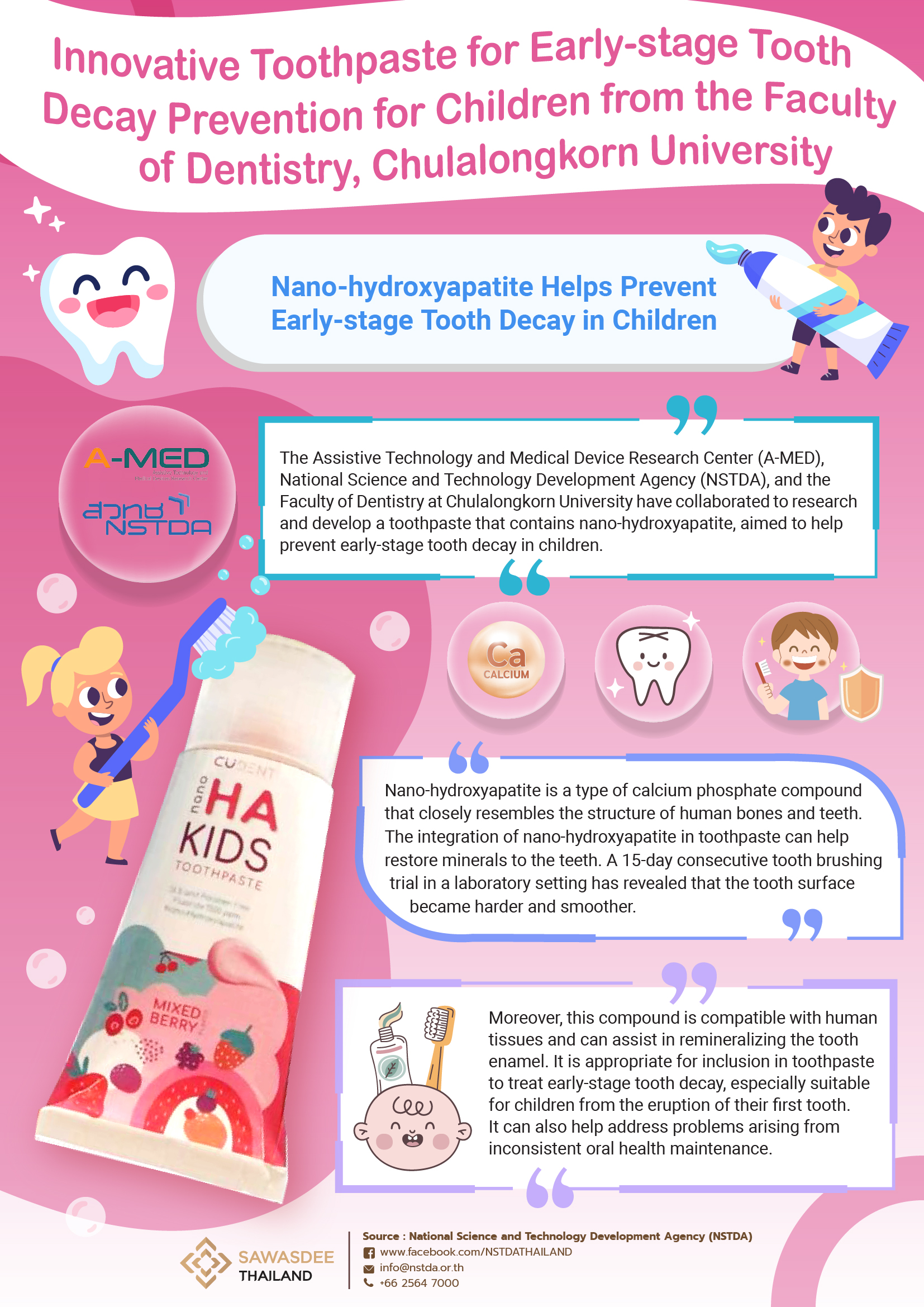
Oral health issues, including dental problems, are significant for both children and adults. In particular, tooth decay in children is a significant concern, with over 50% of Thai children experiencing this issue. Moreover, over 60% of adults struggle with gingivitis, often the genesis of various long-term oral health problems.
The Assistive Technology and Medical Device Research Center (A-MED), National Science and Technology Development Agency (NSTDA), and the Faculty of Dentistry at Chulalongkorn University have collaborated to research and develop a toothpaste containing nano-hydroxyapatite, aimed to counter early-stage tooth decay in children.
Nano-hydroxyapatite is a type of calcium phosphate compound that closely resembles the structure of human bones and teeth. The researchers have used techniques to pulverize this compound into a powder that can be incorporated into toothpaste. By adding 5% and 10% nano-hydroxyapatite to toothpaste, they assessed its potential in preventing tooth decay. Additionally, they tested the toxicity to cells, comparing it with regular toothpaste available in the market. The results showed that the prototype toothpaste caused fewer cell deaths. Moreover, the addition of nano-hydroxyapatite to the toothpaste helped remineralize the teeth. A 15-day consecutive brushing trial in a laboratory setting revealed an increased smoothness and hardness of the tooth surface.
Furthermore, the compound is biocompatible with human tissues and aids in remineralizing the tooth enamel. This makes it suitable for inclusion in toothpaste, used for treating early-stage tooth decay, and ideal for children from the eruption of their first tooth. It also aids in mitigating issues arising from a lack of consistent oral hygiene.
This research signifies a step forward in innovation, enhancing accessibility to treatments utilizing quality, domestically-produced medical materials. This could also reduce reliance on imports from abroad. Currently, this prototype toothpaste is in the process of receiving approval from the Food and Drug Administration before it can be manufactured and launched by the end of 2023.
Source: National Science and Technology Development Agency (NSTDA)
Tel. +66 2564 7000
